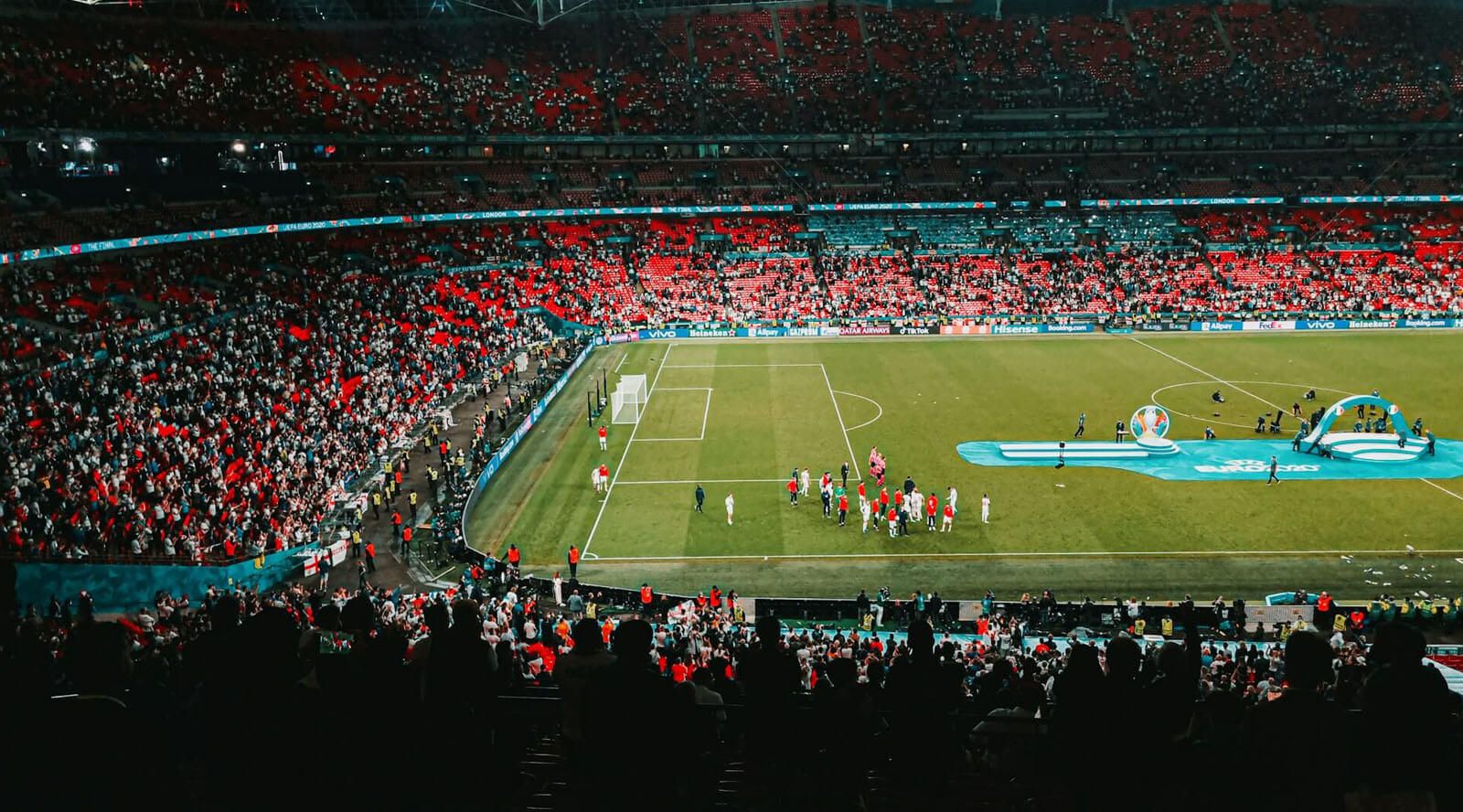2026 FIFA World Cup
The FIFA World Cup 2026™ brought football’s biggest stage to North America, hosted jointly by the United States, Canada, and Mexico. With 48 teams competing, fans witnessed unforgettable drama, rising stars, and historic moments, culminating in a thrilling final that showcased the next generation of global football greatness.
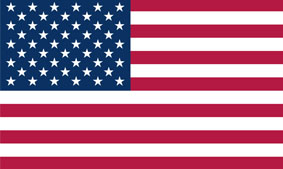
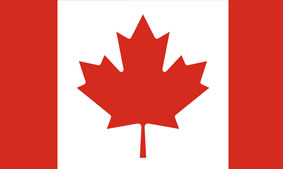
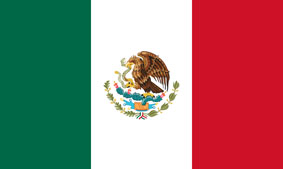
USA, CANADA, & MEXICO
Overview
The FIFA World Cup 2026™ is set to be the biggest tournament yet, with 48 nations competing across host cities in the United States, Canada, and Mexico. This will be the first time three countries co-host the World Cup, promising a diverse celebration of football culture.
Fans around the world eagerly await star performances from players like Kylian Mbappé, Jude Bellingham, and rising talents from Asia and Africa. With new formats, expanded knockout stages, and record-breaking attendance expected, 2026 aims to redefine the global football experience. All eyes are on North America as it prepares to deliver unforgettable moments, thrilling matches, and perhaps even crown a new world champion on the sport’s biggest stage.
Learn More2022 FIFA World Cup
The 2022 FIFA World Cup was the first time that the tournament was held in the Middle East, with the federation awarding Qatar the hosting rights. The fans witnessed Lionel Messi cementing his legacy as one of the greatest footballers of all time after leading Argentina to World Cup glory.

QATAR
SUMMARY
Better late than never—at 35, Lionel Messi finally lifted the trophy he had long dreamed of, as Argentina claimed their third World Cup title at Qatar 2022.
The final is widely regarded as one of the greatest in World Cup history. Argentina led 2–0 in the first half with goals from Messi and Ángel Di María. France didn’t come alive until the 71st minute, when late substitutions changed the game. Mbappé scored twice quickly to make it 2–2 and force extra time. Messi struck again in the 108th minute, but Mbappé equalized with a penalty to complete his hat-trick. With the score 3–3, Argentina triumphed 4–2 in the penalty shootout to seal a dramatic victory.
2018 FIFA World Cup
The 2018 FIFA World Cup was the first to be held in Eastern Europe and the first to take place across two continents—Europe and Asia—with Russia hosting the tournament for the first time. France went on to claim their second World Cup title in 20 years.
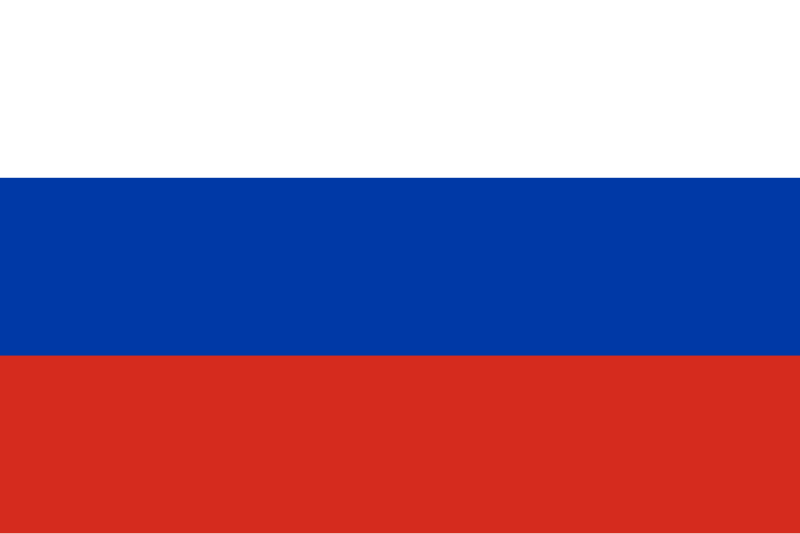
RUSSIA
SUMMARY
Twenty years after captaining France to World Cup glory, Didier Deschamps led the team to another title—this time as head coach—at the 2018 tournament in Russia.
That year also marked the breakout of 19-year-old Kylian Mbappé, who played a pivotal role in France’s triumphant run.
Croatia, led by midfield superstar Luka Modrić, made a historic run to their first-ever World Cup final, capturing hearts around the world. However, France’s firepower proved decisive. Goals from Antoine Griezmann, Mbappé, Paul Pogba, and an unfortunate own goal by Mario Mandžukić—which happened to be the first in a World Cup final—secured a 4–2 win and Les Bleus’ second title in the quadrennial world football championship.
2014 FIFA World Cup
The 2014 FIFA World Cup was held in Brazil for the first time since 1950, and it delivered plenty of unforgettable moments. The tournament is best remembered for Germany’s stunning 7-1 win over the host nation in the semifinal, on their way to winning the title.

BRAZIL
SUMMARY
Germany, through their sheer dominance and masterclass of a football showcase, claimed glory when the FIFA World Cup returned to Brazil in 2014.
Jöachim Löw’s squad made headlines around the world after producing one of the most shocking results in tournament history—an unforgettable 7-1 thrashing of host nation Brazil in the semifinals. The lopsided game stunned fans and set the stage for the final clash against Argentina.
Unlike the semifinal, the final was a tense, closely contested battle. It wasn’t until extra time that the deadlock was finally broken. Mario Götze, coming off the bench, scored a stunning volley to seal a 1-0 victory for Germany. That magical moment secured Die Mannschaft their fourth World Cup title.
2010 FIFA World Cup
The 2010 FIFA World Cup was the first to be held in Africa, with South Africa as the host nation. It was also the tournament where Spain defeated the Netherlands 1-0 to win their first-ever World Cup title.

SOUTH AFRICA
SUMMARY
After a stunning opening loss to Switzerland, Spain quickly got their act together and charged through the tournament, led by legends like Sergio Ramos, Andrés Iniesta, Xavi, and David Villa.
Their teamwork and precision saw them dominate the knockout rounds and reach the final. In a tense clash against the Netherlands, La Roja clinched the title with the extra-time goal from Iniesta, sealing a 1–0 victory. This historic win crowned Spain as the eighth nation to lift the World Cup trophy—and made them the first European team to win the tournament outside Europe. Until that point, every World Cup held outside the continent had been won exclusively by South American sides.
2006 FIFA World Cup
The 2006 World Cup marked the second time Germany hosted the tournament—and the first as a unified nation, including the former East Germany. Italy claimed their fourth World Cup title in this edition, their first since winning the tournament in 1982 in Madrid, Spain.
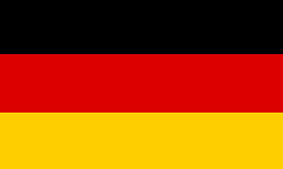
GERMANY
SUMMARY
Italy claimed their fourth World Cup title—their first since 1982—under the guidance of legendary head coach Marcello Lippi.
France struck first with a penalty from Zinedine Zidane, but Italy responded quickly through a powerful header by Marco Materazzi. The match’s climax came in extra time, when Zidane was sent off for headbutting Materazzi in a shocking incident. With the score locked at 1–1 after 120 minutes, the final was decided by a tense penalty shootout. Italy held their nerve, and Fabio Grosso delivered the winning spot-kick. The Azzurri’s triumph not only ended a 24-year drought but also cemented their place as the second most successful team in World Cup history.
2002 FIFA World Cup
The 2002 FIFA World Cup marked the first time the tournament was held in Asia, co-hosted by Japan and South Korea. The 2002 edition also saw Brazil extend their record by winning a fifth World Cup title by defeating Germany 2-0.
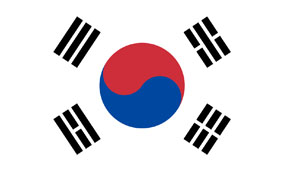
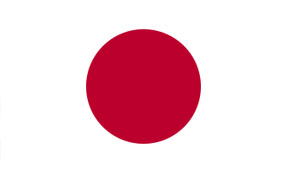
KOREA & JAPAN
SUMMARY
Brazil asserted their dominance and returned to the top when the World Cup was held in Asia for the first time in 2002, with Japan hosting the final at the International Stadium in Yokohama.
Ronaldo shone throughout the tournament, scoring eight goals to win the Golden Boot, including two in the second half of the final that sealed a 2-0 win over Germany. The victory cemented Selecao’s legacy as the most successful national team in World Cup history, extending their record with a fifth title.
1998 FIFA World Cup
The 1998 FIFA World Cup was hosted by France for the second time in the history of the tournament (the first was in 1938). France won their first-ever World Cup title on home soil, convincingly beating defending champions Brazil, 3-0.

FRANCE
SUMMARY
The 1998 World Cup final took place at the Stade de France in Saint-Denis and became a night to remember for the home fans.
In a highly anticipated clash between France and Brazil, it was Zinedine Zidane who stole the spotlight, scoring two headers in the first half to give France a commanding lead. Emmanuel Petit added the finishing touch in stoppage time, sealing a 3–0 victory and sparking celebrations across the country. The win marked France’s first-ever World Cup title and made them the sixth team—after Uruguay, Italy, England, West Germany, and Argentina—to win the tournament on home soil. It was the beginning of something special for French football.
1994 FIFA World Cup
The 1994 FIFA World Cup marked the first time that United States hosted the global football tournament. It was also that year that Brazil become the first country to win four World Cup titles.

USA
SUMMARY
1990 FIFA World Cup
West Germany captured their third World Cup in 1990 by beating Argentina 1-0 in a hard-fought final in Rome. Four years after losing to the same opponent, the Germans got their revenge. Andreas Brehme’s late penalty sealed the win, while two Argentine red cards added edge to a tense championship clash.
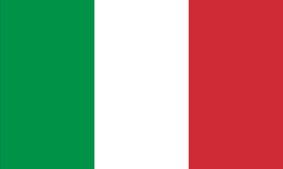
ITALY
SUMMARY
West Germany earned sweet revenge over Argentina in the 1990 World Cup final, edging a gritty contest 1-0 in Rome. Four years after losing to La Albiceleste in Mexico, the Germans flipped the script thanks to Andreas Brehme’s calm penalty five minutes from time.
It was a fiery final—Argentina finished with nine men after red cards to Pedro Monzon and Gustavo Dezotti. Both teams had reached the decider via semi-final shootouts: West Germany defeated England, while Argentina ousted hosts Italy. With discipline, control, and purpose, West Germany secured their third World Cup crown and avenged past heartbreak on the biggest stage.
1986 FIFA World Cup
Argentina won their second FIFA World Cup in 1986 – the second time Mexico held the tournament – inspired by Diego Maradona’s brilliance. His infamous ‘Hand of God’ goal and solo stunner against England became iconic. Argentina beat West Germany 3-2 in a thrilling final, with Jorge Burruchaga scoring the winner after Germany had fought back from two goals down.

MEXICO
SUMMARY
Diego Maradona lit up Mexico 1986 with one of the most iconic World Cup campaigns in history. His masterclass included two unforgettable goals in the quarter-final against England: the infamous ‘Hand of God’ and a breathtaking solo run from midfield.
Maradona added two more in the semi-final against Belgium, carrying Argentina to the final. In a dramatic clash with West Germany, Argentina saw their 2-0 lead wiped out before Jorge Burruchaga netted a late winner. Maradona finished with five goals, countless moments of brilliance, and a legacy forever tied to Argentina’s second World Cup triumph.
1982 FIFA World Cup
Italy won their third FIFA World Cup in 1982, beating West Germany 3-1 in the final in Madrid. Paolo Rossi starred throughout, finishing as top scorer. After stunning Brazil and Poland, Rossi struck again in the final. Marco Tardelli and Alessandro Altobelli completed the scoring in a famous Italian triumph.
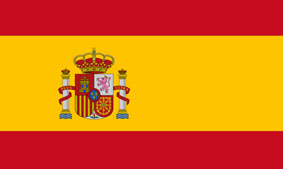
SPAIN
SUMMARY
Italy claimed their third World Cup title—and first since 1938—with a 3-1 win over West Germany in the 1982 final in Madrid. Paolo Rossi was the face of their triumph, firing six goals in the knockout rounds.
He famously netted a hat-trick in a thrilling 3-2 win over Brazil, then scored twice against Poland in the semi-final. In the final at the Santiago Bernabéu, Rossi opened the scoring once more, with Marco Tardelli and Alessandro Altobelli adding to Italy’s tally. The Azzurri’s victory in Spain marked a glorious return to the summit of world football.
1978 FIFA World Cup
Argentina won their maiden FIFA World Cup in 1978 on home soil, defeating the Netherlands 3-1 after extra time in the final. Led by top scorer Mario Kempes, La Albiceleste were crowned champions, while the Dutch finished runners-up once again. Brazil claimed third place in the tournament held in South America.

ARGENTINA
SUMMARY
Argentina lifted their first-ever World Cup on home soil in 1978, powered by the brilliance of Mario Kempes. The dynamic forward scored six goals, winning the Golden Boot and leading La Albiceleste through an unforgettable campaign.
In the final at Estadio Monumental, Kempes opened the scoring against the Netherlands, who struck late to force extra time. But Kempes answered again with a trademark solo run and finish, before Daniel Bertoni made it 3-1. Argentina’s triumph sparked wild celebrations across Buenos Aires, as the hosts secured football’s greatest prize for the first time.
1974 FIFA World Cup
The 1974 FIFA World Cup was hosted by West Germany. The home side emerged as champions, claiming their second title by defeating the Netherlands 2-1 in the final. It was a clash of styles, with West Germany’s efficiency overcoming the Dutch’s revolutionary ‘Total Football’ on the grand stage in Munich.

GERMANY
SUMMARY
West Germany claimed their second World Cup title in 1974, edging the Netherlands 2-1 in a gripping final in Munich. The Dutch, led by their iconic ‘Total Football’ style, had dazzled en route to the final, thrashing Argentina 4-0 and Brazil 2-0.
Johan Neeskens gave them a perfect start, scoring a penalty in just the second minute. But the hosts hit back. Paul Breitner equalized from the spot before Gerd Müller—always deadly in the box—netted what proved to be the winning goal. Despite their flair and dominance throughout the tournament, the Dutch fell short at the final hurdle, while West Germany celebrated glory on home soil.
1970 FIFA World Cup
Brazil’s 1970 World Cup-winning team is widely revered as one of the greatest ever to grace the game as they beat Italy in a convincing final at the Aztec Stadium.

MEXICO
SUMMARY
Brazil won the 1970 World Cup in the most compelling fashion. With Pele, Carlos Alberto, Tostao, and Jairzinho on the team, this year’s Selecao was widely considered the all-time greatest in the tournament’s history.
The astonishing team swept their path all the way to the final, where they met Italy. At Azteca Stadium, Pelé and co. delivered a one-way final, in which they cruised past their opponents 4-1 in front of a record audience of more than 100,000.
1966 FIFA World Cup
The 1966 FIFA World Cup was the first, and until the present day, the only tournament that saw England win the elite title. Even more special, the triumph took place on home soil, which was in front of a jubilant Wembley crowd.
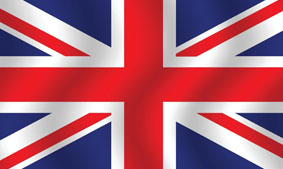
ENGLAND
SUMMARY
England won the World Cup for the first time on home soil in the 1966 World Cup when they triumphed in thrilling circumstances. In front of an excited Wembley crowd, the Three Lions beat West Germany 4-2 after extra time in the final.
1962 FIFA World Cup
The 1962 FIFA World Cup marked the first tournament hosted by Chile which came two years after a devastating earthquake hit the Latin American nation. Brazil made the event special after they successfully defended their title, by beating Czechoslovakia, 3-1, despite the Selecao losing Pele early into the competition.

CHILE
SUMMARY
Brazil defended their World Cup crown by turning back Czechoslovakia 3-1 in the 1962 final held in Santiago, Chile. The Selecao did it despite the absence of Pelé for most of the tournament.
Czechoslovakia got the opening goal from Josef Masopust in the 15th minute before Brazil responded two minutes later behind an Amarildo shot. Zito and Vava struck for two more goals to ensure the Selecao’s second-straight title. Pele was impressive in the early stages capped with an impressive goal against Mexico until an injury sidelined him. Garrincha stepped up in Pele’s absence during the knockout rounds with his dribbling, vision, and flair. Pelé failed to play in the final, but Garrinch’s leadership Brazil’s status as the a footballing superpower.
1958 FIFA World Cup
1958 FIFA World Cup was the first tournament held in a Nordic country, with Sweden playing host to the global event. Even more special, it marked the rise of a 17-year-old Pelé, who led Brazil to their first-ever World Cup title by beating the hosts, 5-2, in Stockholm.
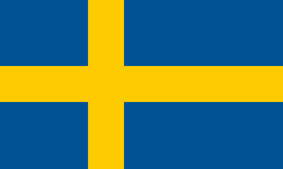
SWEDEN
SUMMARY
Brazil made history by winning their first World Cup title in their 5-2 win over hosts Sweden in a thrilling 1958 final in Stockholm. This also gave birth in what would biome a football dynasty. The hosts opened scoring behind captain Nils Liedholm. But Brazil got back through Vava to tie the match before his second goal gave the visitors the 2-1 lead at halftime.
It was the second half where Pele would introduce himself to the world. The 17-year-old made an impressive volley to give the Selecao a 3-1 lead before his second goal before Mario Zagallo added another for a 4-1 score. Simonsson cut Brazil’s lead to two with 10 minutes late but it was too late.
1954 FIFA World Cup
The 1954 FIFA World Cup was known as the first tournament to be held in Switzerland to celebrate FIFA’s 50th anniversary. What made it special turned out to be another massive upset took place as underdog West Germany stunned Hungary, 3-2, in what’s also known as the “Miracle of Bern.”

SWITZERLAND
SUMMARY
West Germany stunned the football world by beating highly-favored Hungary 3-2, to win their first World Cup title in the 1954 final in Bern. The match was also became known as the “miracle of Bern.” Unbeaten Hungary raced to a quick 2-0 lead through goals from Puskas and Czibor. However, West Germany came back behind Morlock and Helmut Rahm scoring in their next possessions to tie the match in the 18th minute. Rahm capped his game-long brilliance with another defining goal six minutes remaining for West Germany’s decisive goal.
Puskas tried to equalize for Hungary, but his flick-on shot was ruled out for offside. The match also marked as one of the greatest upsets in World Cup history.
1950 FIFA World Cup
The 1950 FIFA World Cup became the first to be staged after World War II while featuring Brazil’s debut as a host. The final was held at the iconic Maracana Stadium, where the Selecao were favored to win. However, Uruguay stunned Brazil, 2-1, in a match was also known as the “Maracanazo.”

BRAZIL
SUMMARY
Brazil had the home crowd with their in their first World Cup final in 1950. But Uruguay defied the odds with a 2-1 come-from-behind win at the Maracana in front of an estimated 173,850 fans. The Selecao took the early with an opening goal from Friaca in the 47th minute. However, the visitors responded behind Juan Alberto Schaffino in the 66th minute to tie the match.
Alcide Ghiggia delivered the coup de grace for Uruguay in the 79th minute to complete one of the greatest upsets in football history. His exploits capped his game-long brilliance, as Uruguay foiled Brazil’s hopes to win in front of their cheering fans. This gave birth to the legendary term “Maracanazo,” meaning the Maracana disaster.
1938 FIFA World Cup
The 1938 FIFA World Cup served as the third edition of the tournament and the first to feature a defending champion (Italy) returning to seek back-to-back titles. Alas, Italy successfully defended its crown after the Gli Azzurri defeated Hungary, 4-2, in the final before an appreciative crowd in Paris.

FRANCE
SUMMARY
Italy claimed history after collecting their second-straight FIFA World Cup title in the 1938 edition, beating Hungary, 4-2, in the final in Paris.
Italy relied on Gino Colaussi to take an early lead before Hungary responded to tie the count several minutes later. The Gli Azzurri answered with goals from Silvio Piola and another from Colaussi to secure the lead. Piola was not done, as he converted another goal to seal Italy’s consecutive title. Piola emerged as the standout player of the match with his relentless movement throughout capped by his two goals. Italy thus became the first team to successfully defend its World Cup title just before the outbreak of World War II.
1934 FIFA World Cup
The 1934 FIFA World Cup served as the second edition of the tournament but the first to be staged in Europe, where Italy was chosen as the host. For the second-straight edition, the host team won it all, after the Gli Azzurri beat Czechoslovakia, 2-1, in the final before their roaring fans.

ITALY
SUMMARY
Italy collected their first world title before home fans in the 1934 FIFA World Cup after beating Czechoslovakia, 2-1, after extra time in a tense final in Rome.
Antonin Puc silenced the home crowd to give Czechoslovakia the early lead in the 71st minute. However, Italy responded behind Raismundo Orsi curling his way for a goal to tie the match 10 minutes later. Angelo Schiavio then came through for the decisive goal in extra time to send the Italian fans into a wild celebration.
Gli Azzurri goalkeeper and captain Gianpiero Combi stood out with his key saves and composure amid intense pressure from opponents. The win marked the start of Italy’s emergence as a football powerhouse in the world stage.
1930 FIFA World Cup
The 1930 FIFA World Cup served as the tournament’s inaugural edition that was held in Uruguay. What made it special for the hosts was that home home fans relished its national men’s team, more known as La Celeste, with the title. Uruguay defeated Argentina, 4-2, in the final at Estadio Centenario.
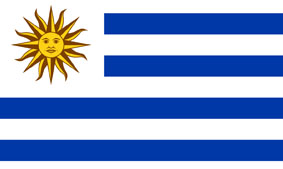
URUGUAY
SUMMARY
Uruguay claimed the inaugural FIFA World Cup in 1930 before its home fans after beating Argentina, 4-2, in an exhilarating final at Estadio Centenario in Montevideo.
The La Celeste made a spirited comeback after trailing 2-1 at halftime behind goals by Pedro Cea, Santos Iriarte, and Hector Castro. Midfielder Jose Leandro Andrade emerged Uruguay’s top player, as he used his pace and skill to dominate the midfield. His heroics cemented Uruguay’s legacy as the first world champions of the tournament.
The La Celeste’s victory marked a defining moment in football history, as Uruguay etched its name into the sport’s biggest stage.


